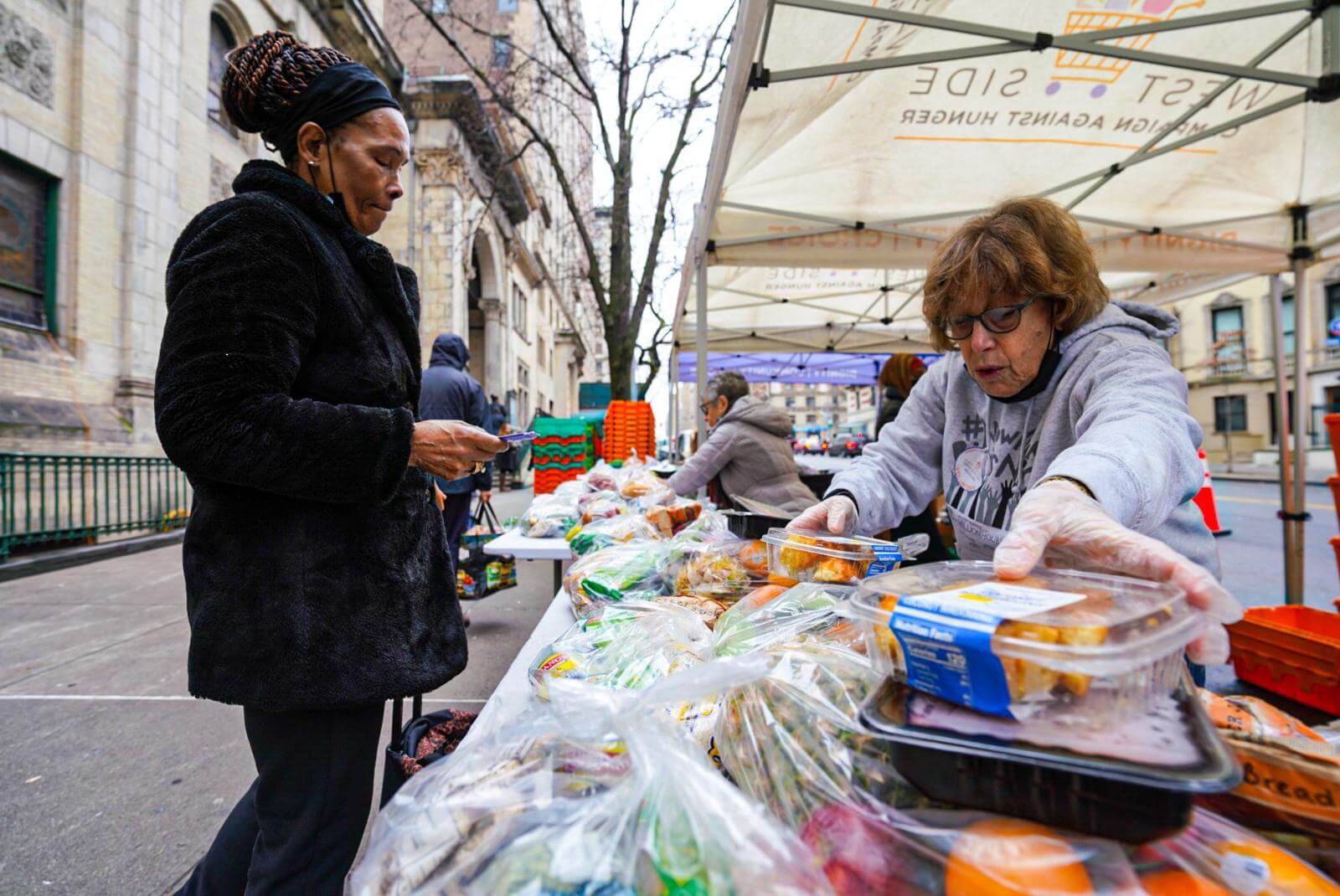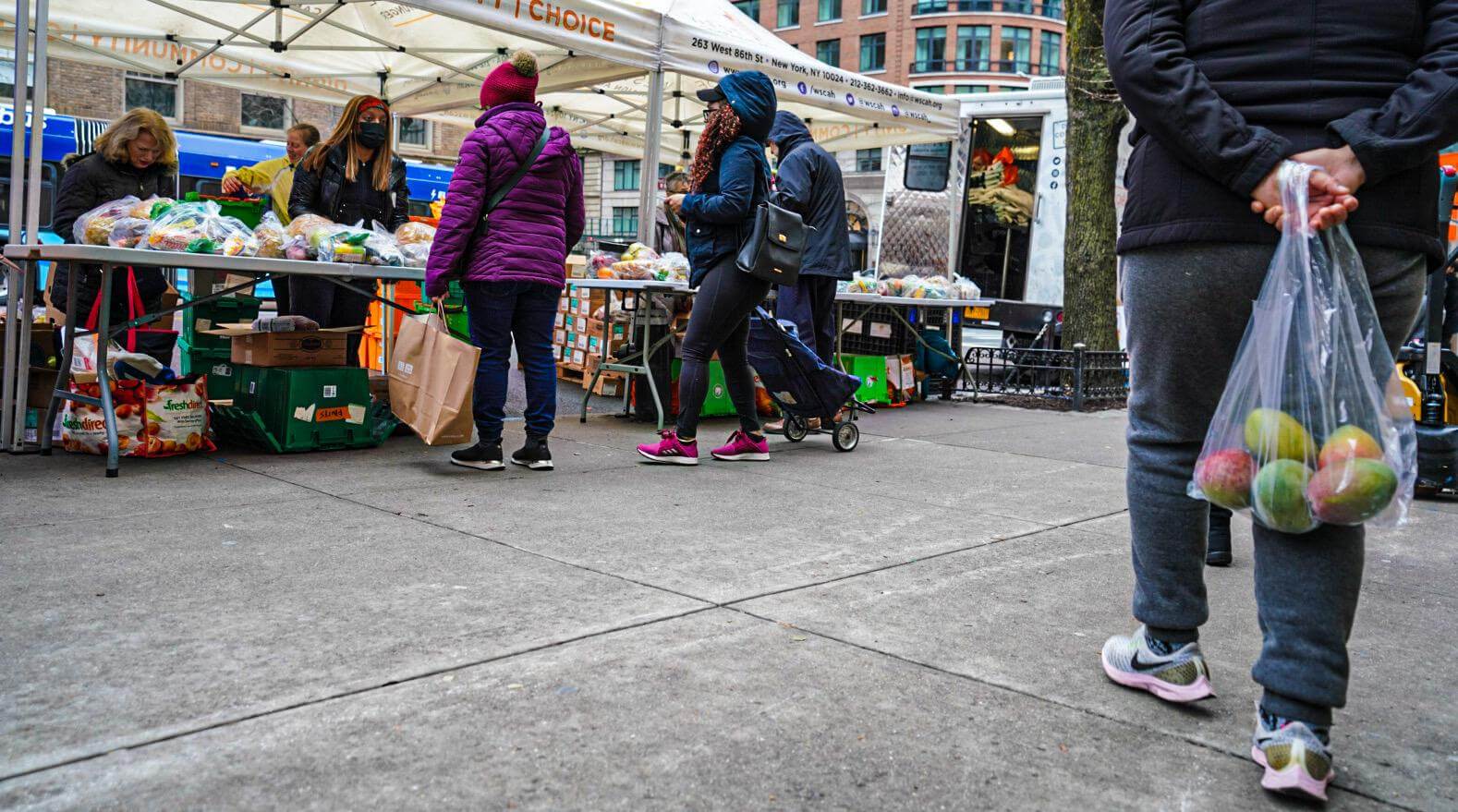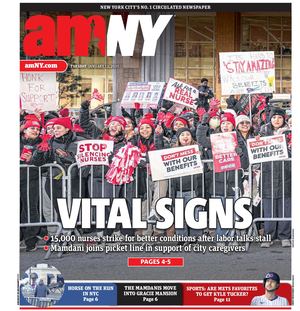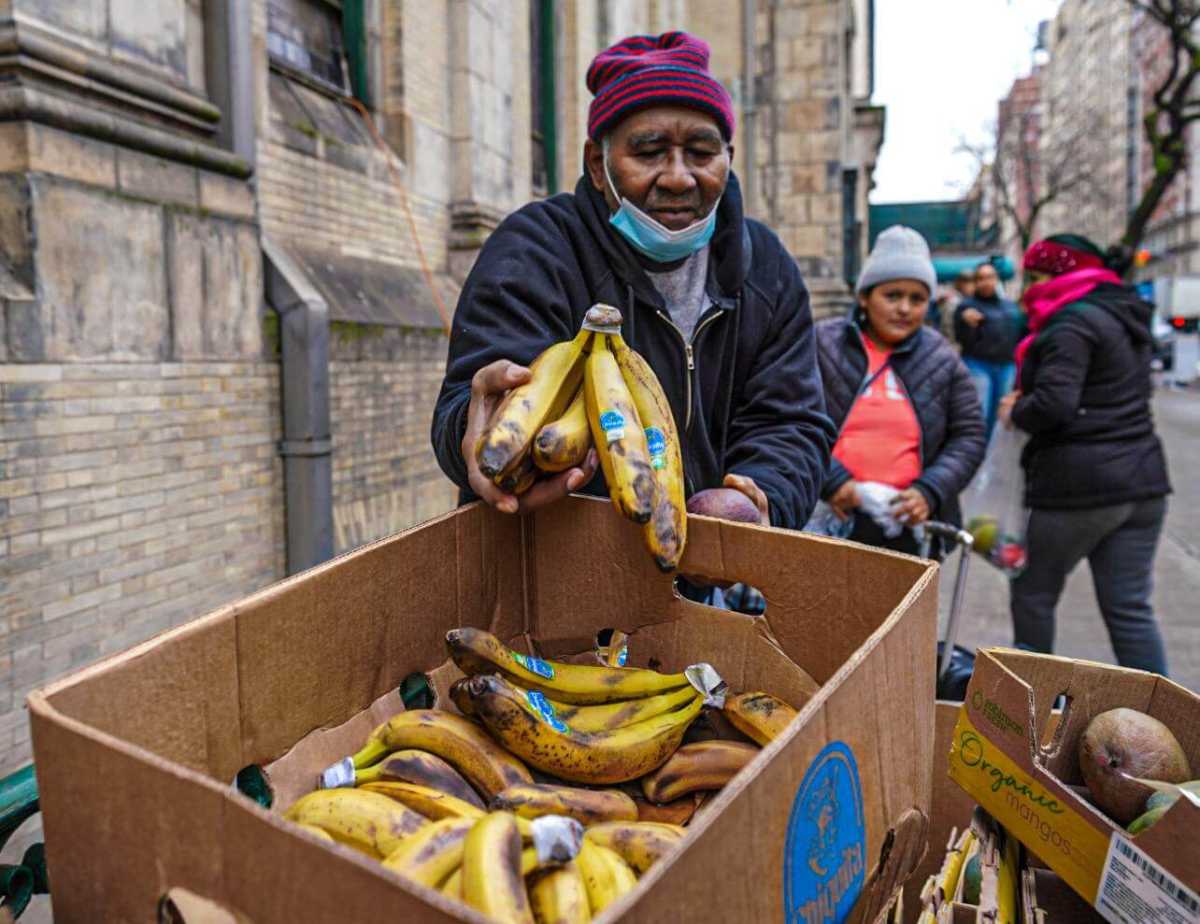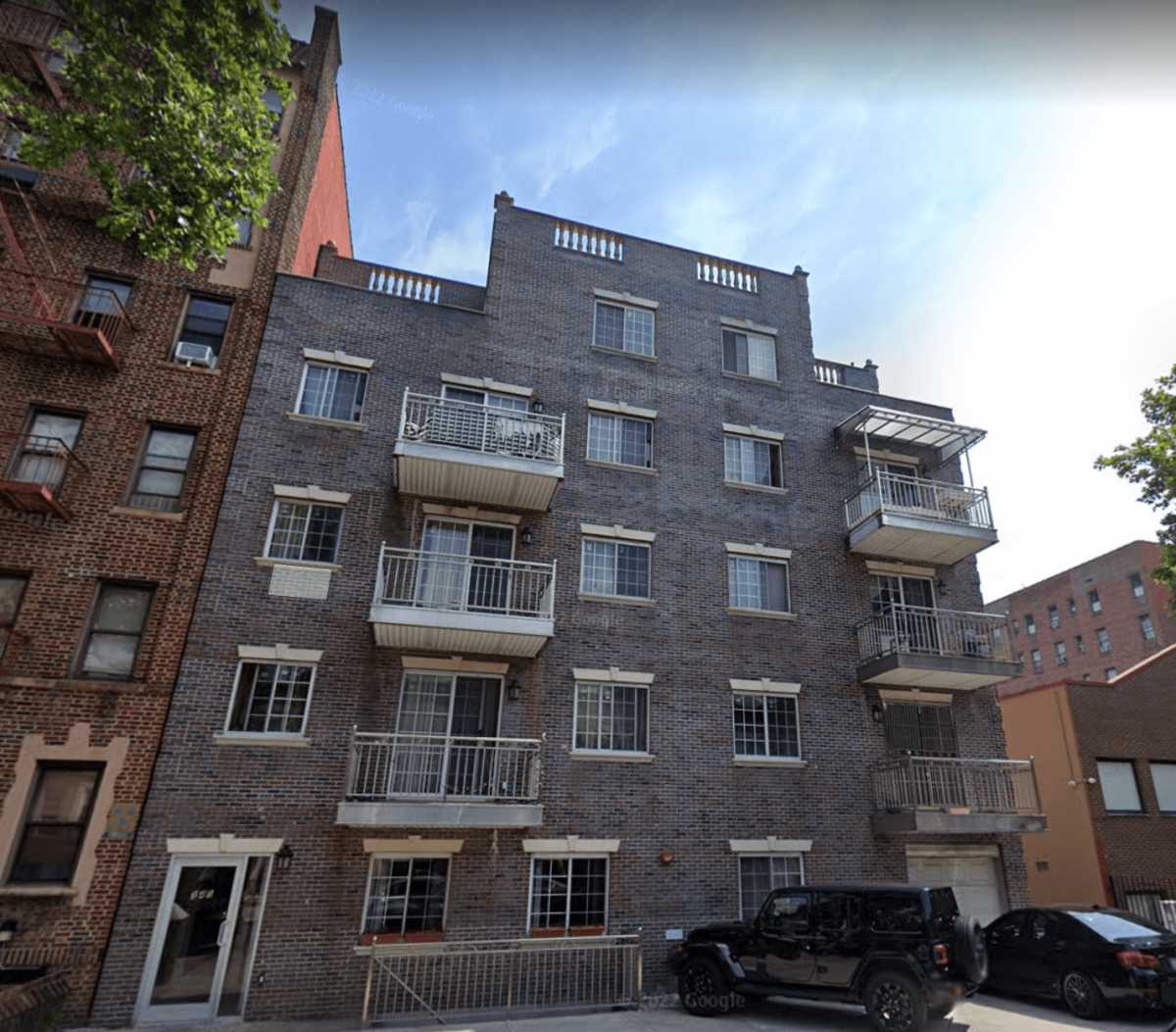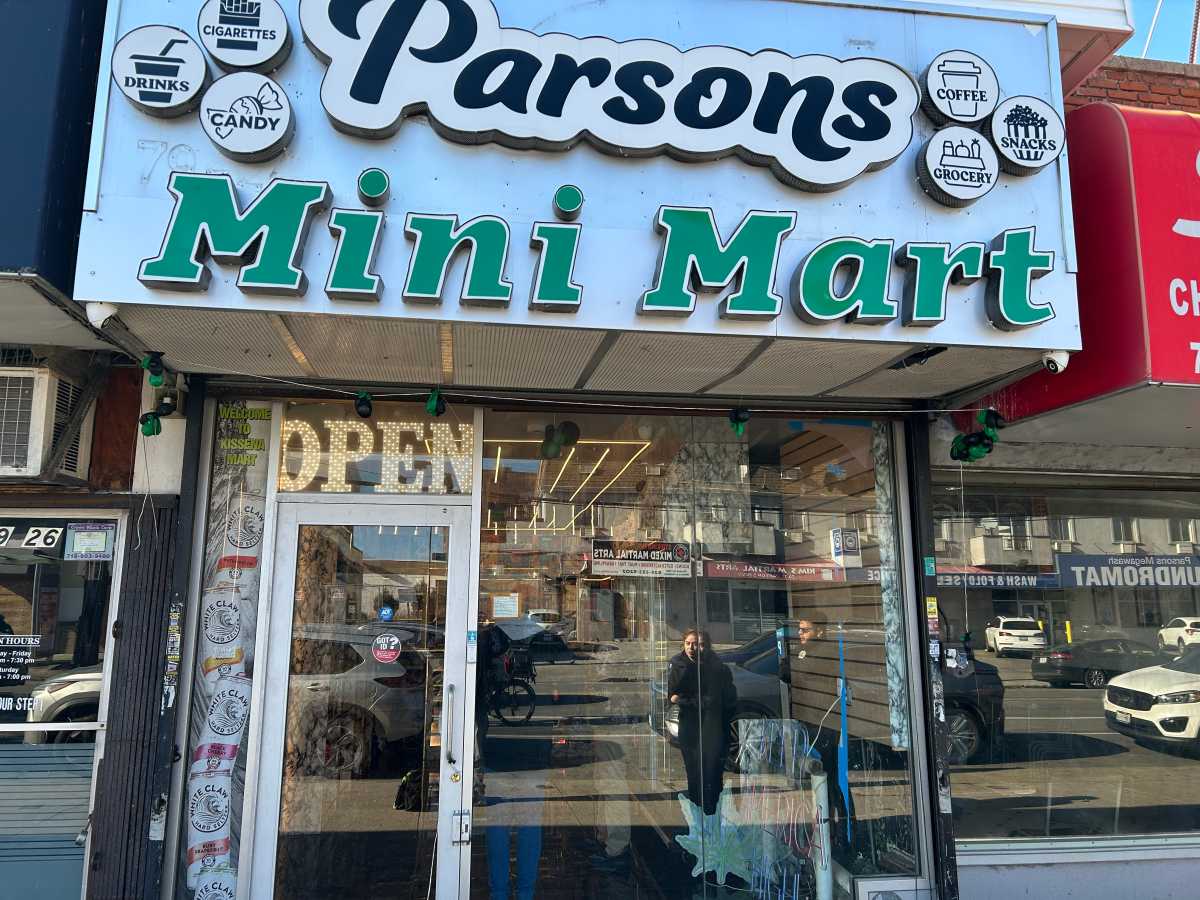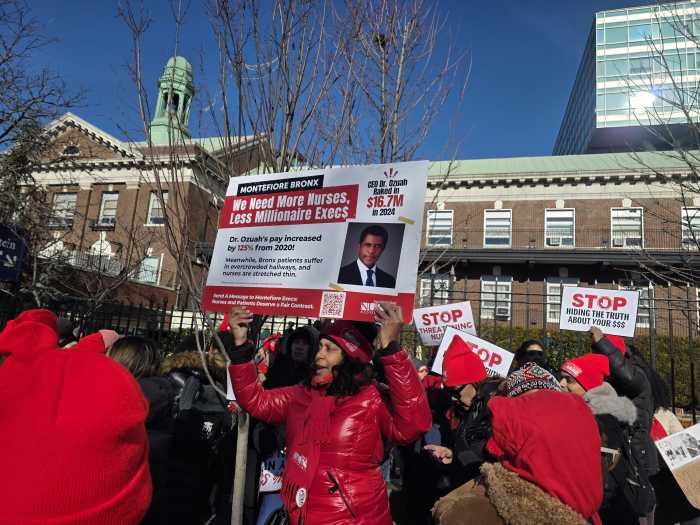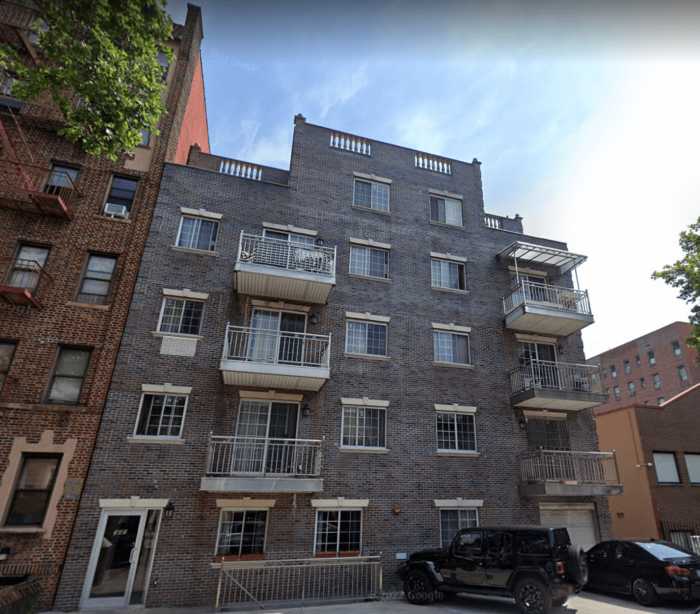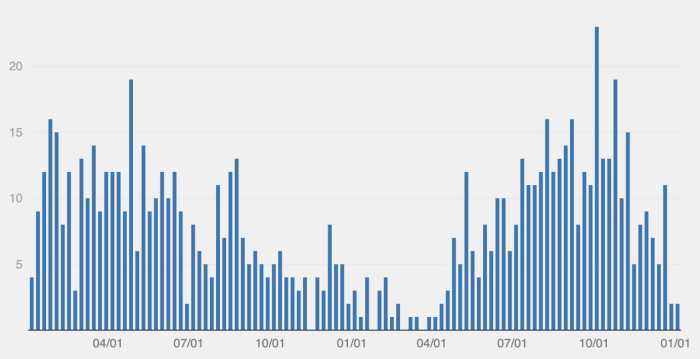Elected officials and anti-hunger outreach groups on Thursday called upon the state government to increase food funding as COVID-era benefits are set to expire next month.
New Yorkers lined around the block on 86th Street and West End Avenue on Feb. 23 while clinging to empty carts. The group — made up of ages ranging from children to the elderly — waited for the food distribution handed out by the West Side Campaign Against Hunger.
While sights like these were frightfully common during the worst of the COVID-19 pandemic, the reality is that many city dwellers continue to suffer from food insecurity in 2023, and according to several politicians and experts on undernourishment, it may only grow worse.
“Some people are calling what’s about to happen in New York to hungry New Yorkers a hunger cliff, this is really a hunger Grand Canyon. Come just a few days from now, come March there is going to be a $234 million reduction in food benefits going to low-income New Yorkers… $234 million,” Hunger Free America CEO Joel Berg said. “Practically all SNAP recipients are going to be harmed by this. But for many seniors, their benefits are going to go from $281 a month to $23 a month.”
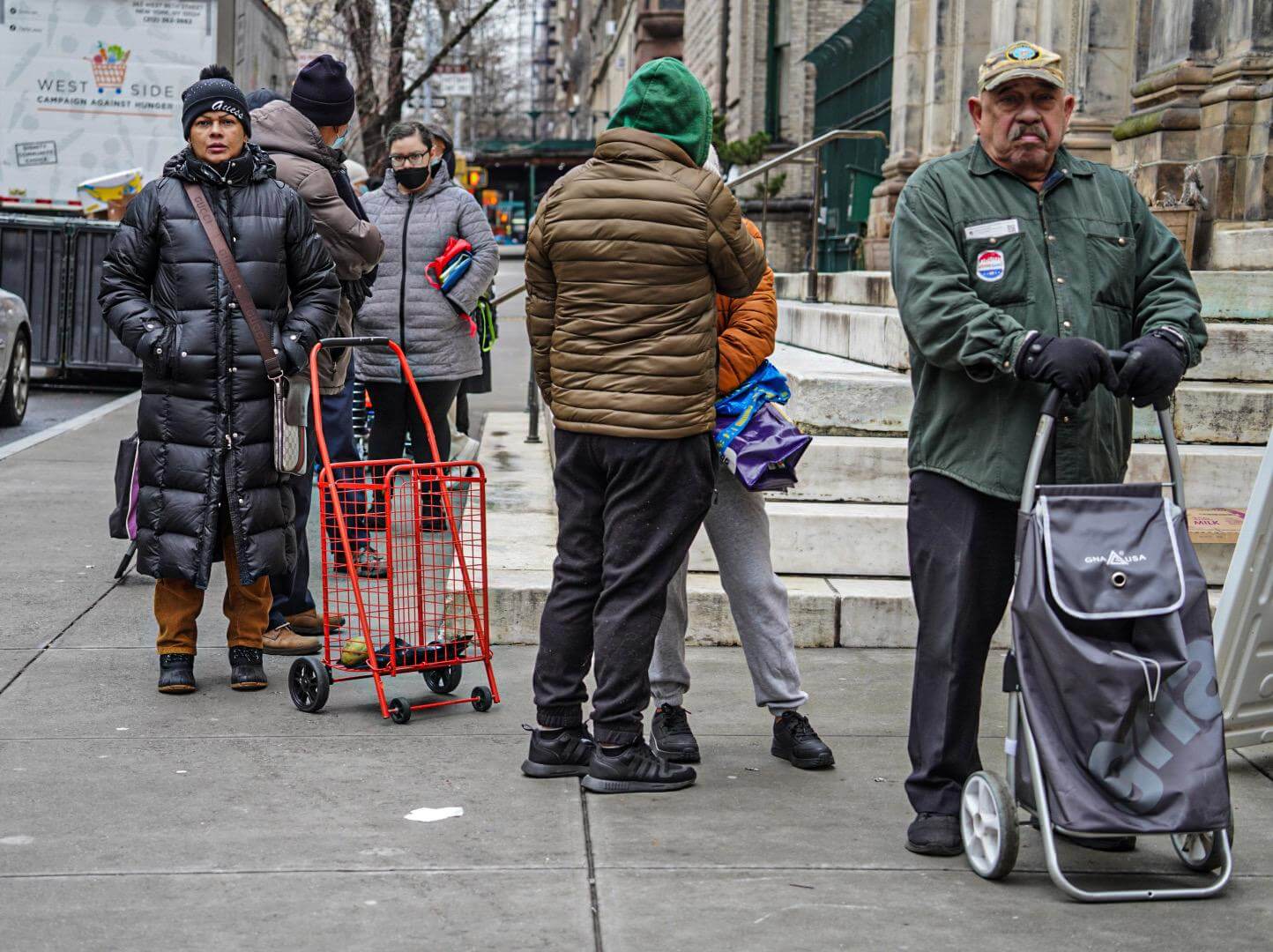

With the federal government set to make the cuts effective on March 1, New York legislators are imploring the state to step in and fill in what will be a massive gap for many. The politicians argue that with people already struggling with these benefits currently intact, come March 1st the damage and suffering will be devastating.
According to Queens Assembly Member Jessica González-Rojas, who serves as the primary sponsor of the Universal School Meals and SNAP Skimming Reimbursement bills, one in 10 New York families are experiencing some form of food insecurity.
González-Rojas charged that this impacts the ability to effectively learn in schools, as well as the health of family units. It is with this in mind that the assembly member is asking for an additional $2.2 billion to be allocated to the cause.
“If we do not have these resources, we can lose local SNAP assisters in our five boroughs and other counties will also lose the NOEP services altogether,” González-Rojas said. “We must fund universal school meals, free breakfast and free lunch at schools across the state.”
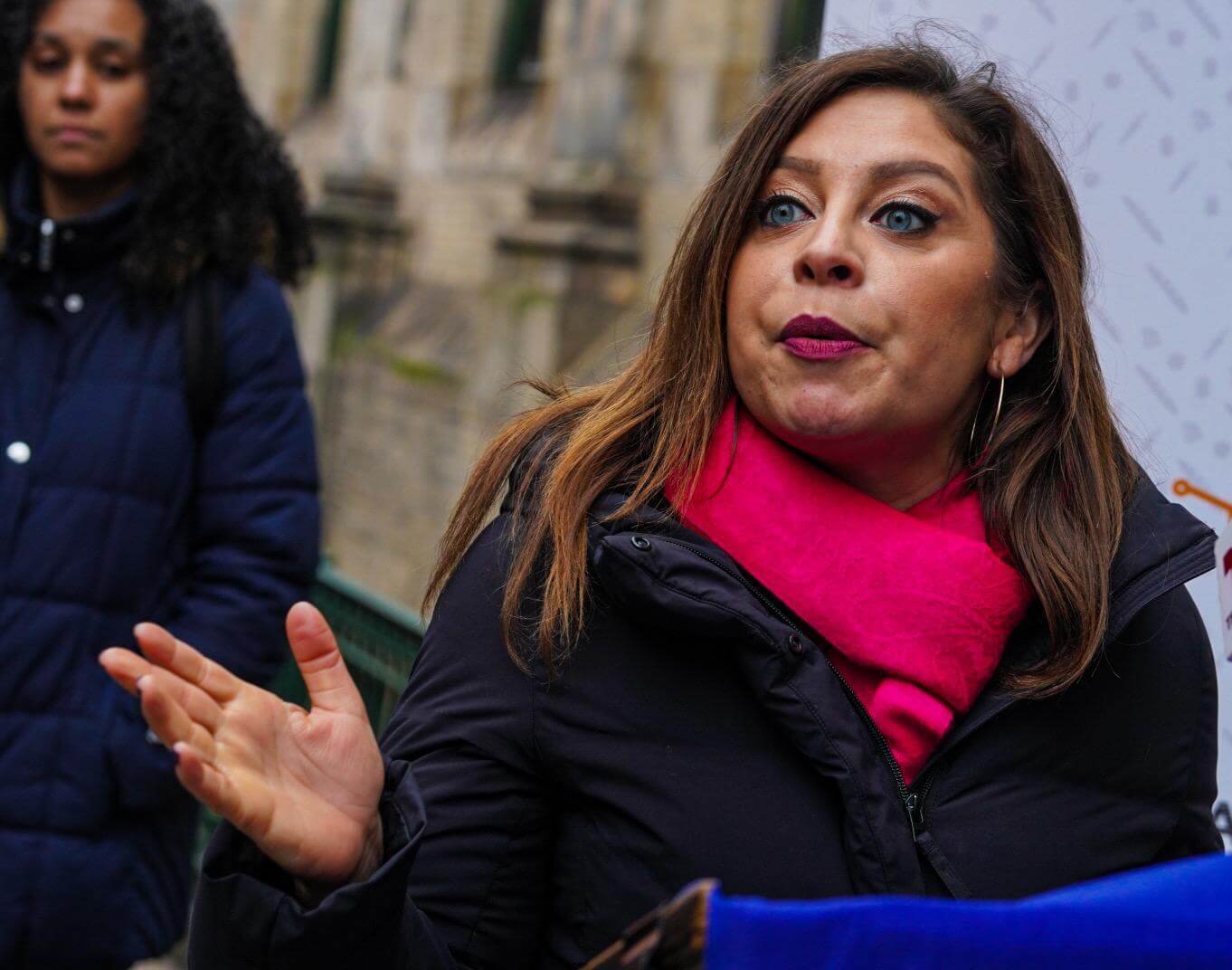
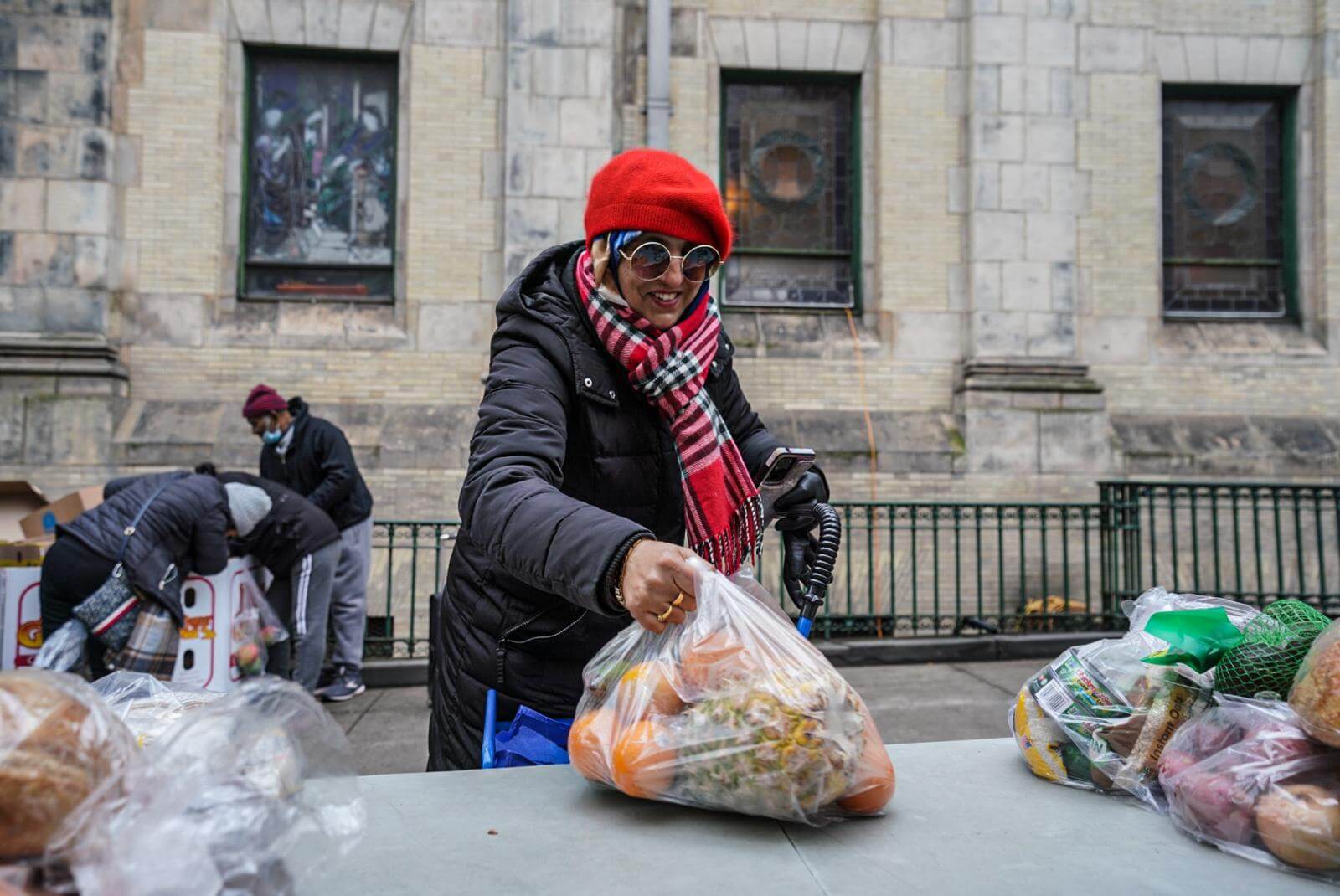
With the Big Apple housing both some of the country’s richest and poorest individuals, it is not uncommon to see the housed in need directly outside of multi-million-dollar condominiums, leading to a perverse status quo. While not an uncommon issue prior to the pandemic, Lydia Joy of Hunger Free America pointed out that the need for nutrition not only grew over the pandemic but has remained as such. Joy beseeched the government for aid.
“We are here to ask the government to come up with a new plan to get these benefits because this access to food is a human right for us. Nobody’s child should go to sleep hungry,” Joy said. “We need to provide food, good food for our families.”
amNewYork Metro reached out to the governor’s office for comment and is awaiting a response.
